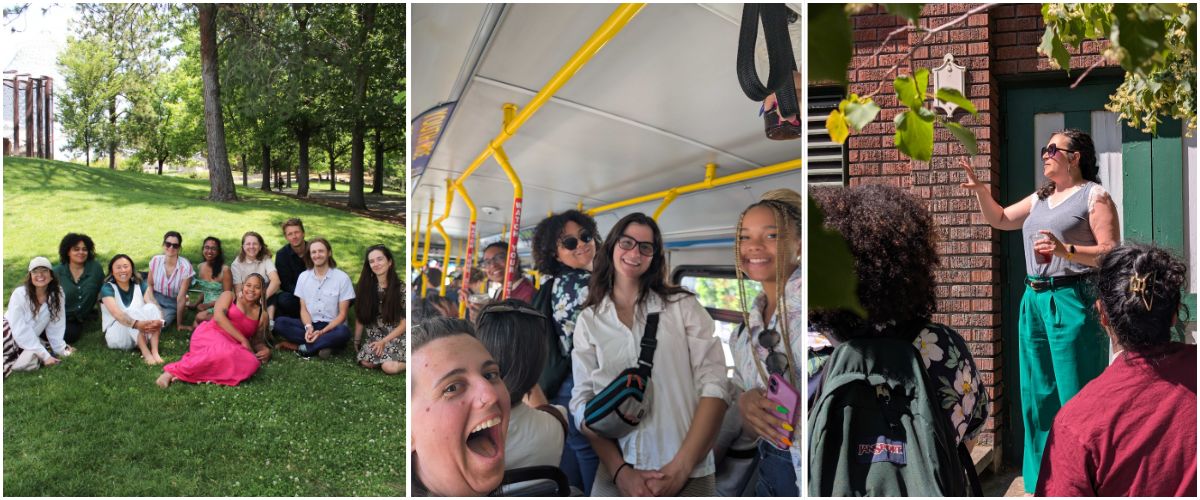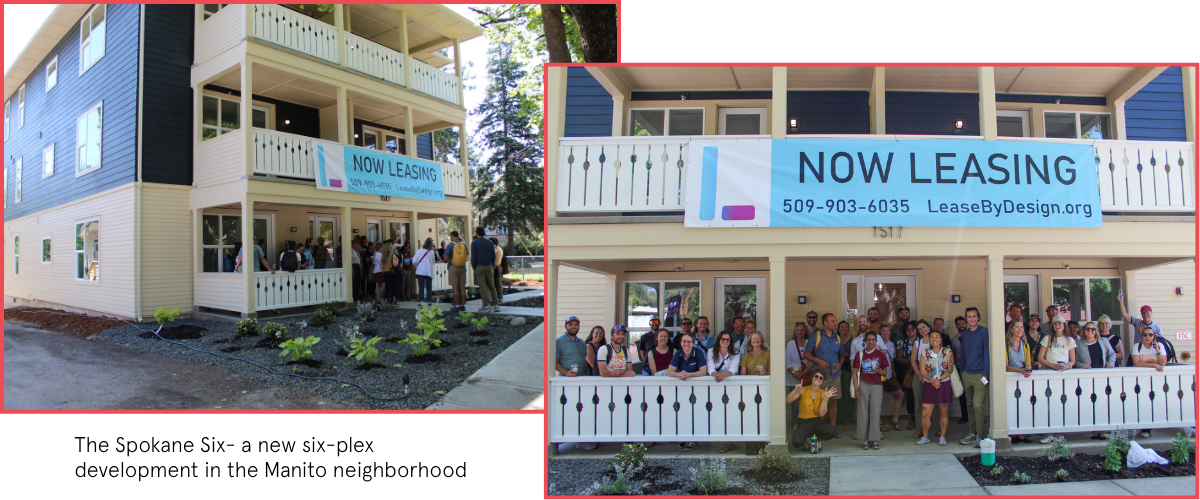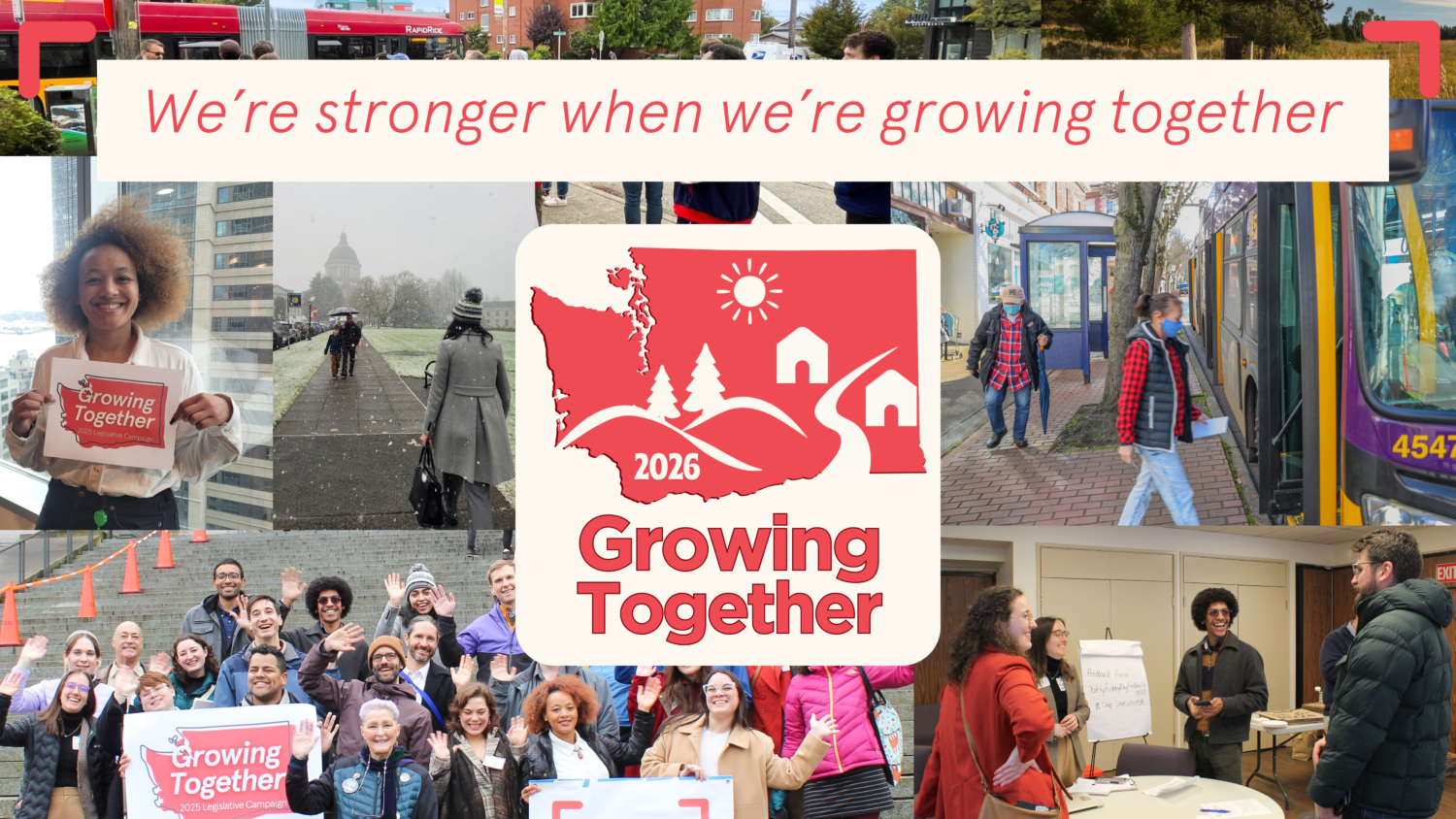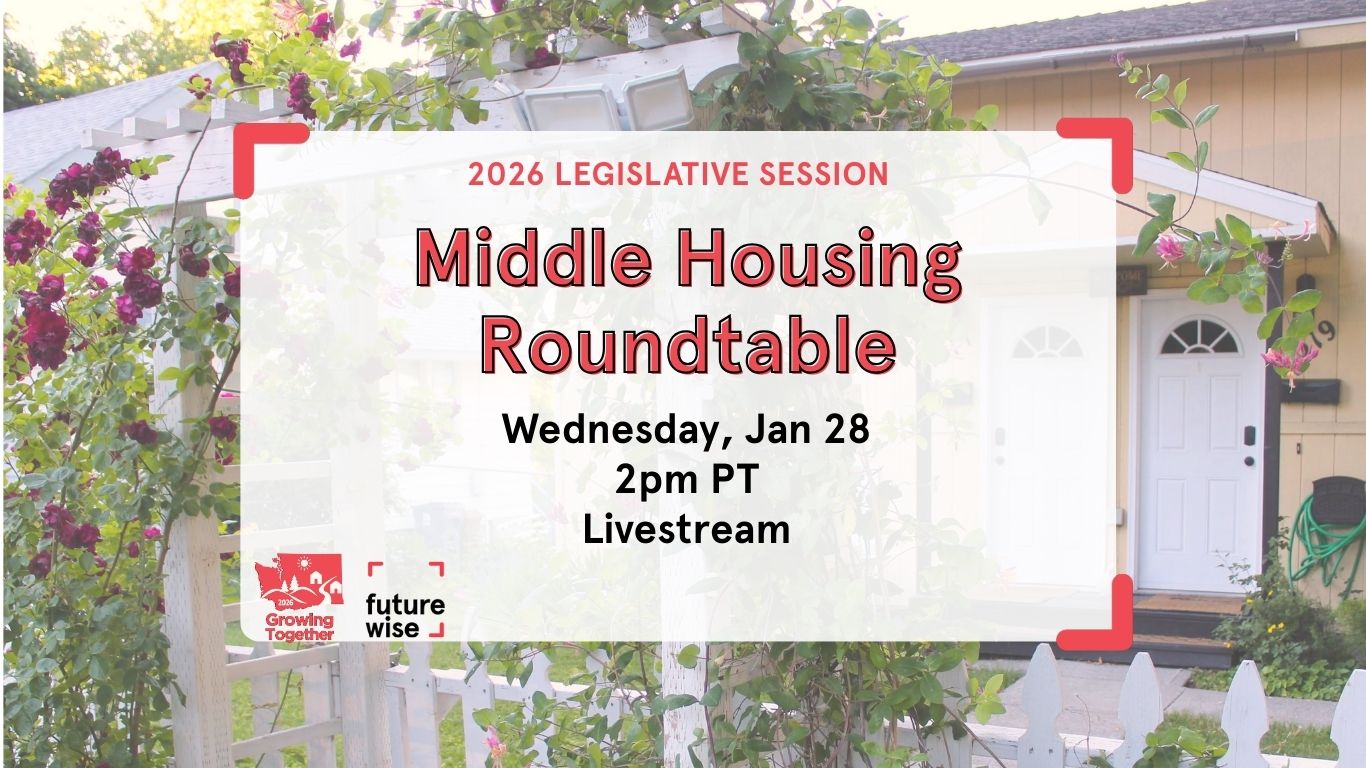June Executive Director’s Note: Reflections from Welcoming Neighbors Network Mountain West Convening
Earlier this month, Futurewise staff headed to Spokane for a two-day convening with our Mountain West colleagues in the Welcoming Neighbors Network, a national network of pro-homes organizations working to increase housing choices in our communities. What a fantastic opportunity to connect with inspiring advocates from across the Western US!
Some of our partners at the convening were founded specifically to address the housing shortage challenges in their communities like Arizona Neighborhood Project, Salt Lake County Neighbors for More Neighbors, Shelter Jackson Hole and Shelter Whitefish. We also met partners who started their housing work with a focus on land trusts or affordable home ownership like Homewise in New Mexico or the Front Step Community Land Trust/ProHousing Missoula. Others, like Futurewise, come from an environmental background but have added housing advocacy as an important intervention for climate and habitat protection, like the Alaska Public Interest Research Group and the Southwest Energy Efficiency Project.

An Opportunity to Cross-share and Learn from Each Other
All of our colleagues shared important insights and learnings about how the unique context of the Mountain West presents challenges and opportunities for smart land use policy that promotes housing affordability while protecting our environment.
For example, Whitefish and Jackson Hole are grappling with similar kinds of growth pressures as towns like Leavenworth and Winthrop. In these tourist towns, a rapid influx of tourism has ratcheted up housing costs for residents and workers while increasing pressure to sprawl outward into the very rural and recreational lands that make those places so wonderful to visit. In Washington, Winthrop is experimenting with innovative land trust models to build permanently affordable homes while protecting farmland and wildlife habitat; Leavenworth is leading on infill development by changing minimum lot sizes in city limits to allow more homes in town.
Another commonality across Western states is the question of water availability. We learned about Santa Fe’s water reclamation system and how Arizona’s on-going sprawl strains existing groundwater and limited water rights from the Colorado River. States across the Mountain West are struggling to meet a demand for growth that runs right up against long-term constraints on water. The issue of water availability has been front and center for Futurewise in recent years since the Hirst decision in 2016: it’s a big part of the reason we have been advocating in the state legislature against legislation that could double development capacity in rural areas.
Exploring Solutions Already at Work in Spokane
We hosted the convening in Spokane, a rapidly growing inland city that has been leading our state (and the country!) on pro-housing policy. In Spokane, home prices skyrocketed in the past five years, a trend we saw mirrored in places like Anchorage, Missoula and Salt Lake City. All of these cities are experimented with new local housing policy like accessory dwelling units and middle housing types to bring new more affordable types of homes into the market.

As part of our convening, we stopped by the Spokane Six, a new six-plex development in the Manito neighborhood that will provide six new two-bed, two bath homes. This development was made possible by the middle housing ordinance passed in Spokane in 2023.
My final takeaway from this convening was an appreciation of Washington’s Growth Management Act and how Washington truly is a national leader in forward thinking land use policy. The activists who founded Futurewise and helped pass the Growth Management Act got to work in the late 1980s, passing the GMA in 1990. I learned that states like Arizona and Colorado had tried to run similar ballot initiatives in the nineties but failed at the ballot box. Now those states are trying to play catch-up: Colorado is experimenting with new requirements for municipal land use planning in an attempt to prevent sprawl. While the GMA is far from perfect, having a statewide framework has led to Washington leading the nation in building more compact communities compared to our peers. With comprehensive plan updates underway across the state, we have a particular opportunity right now to continue to model smart land use policy for our peers in the West.


